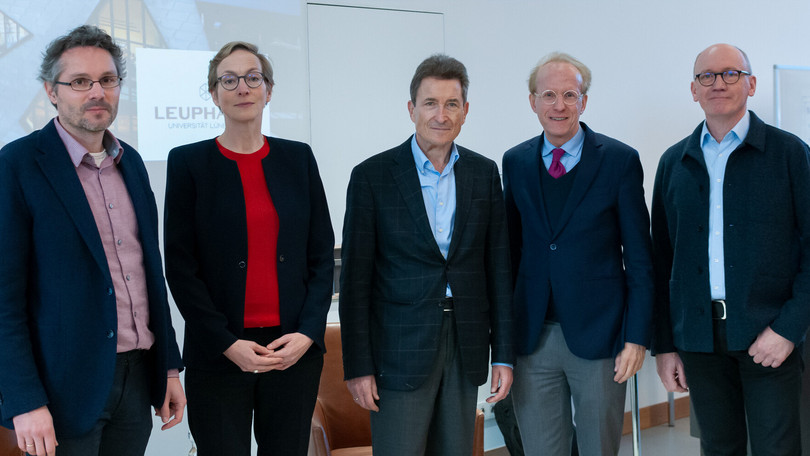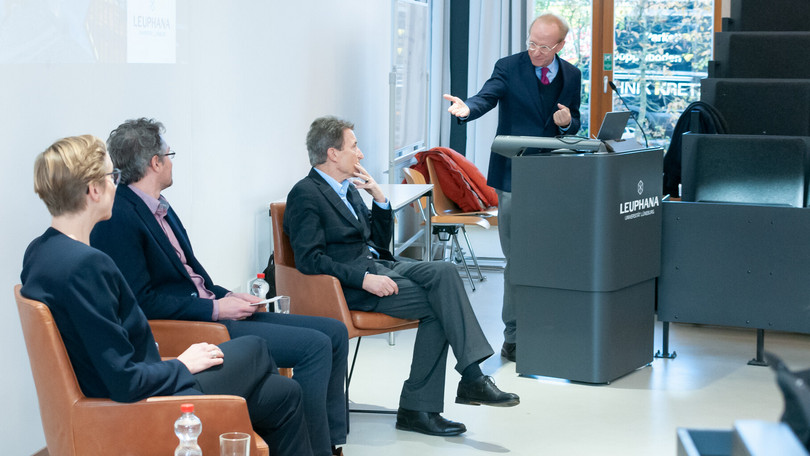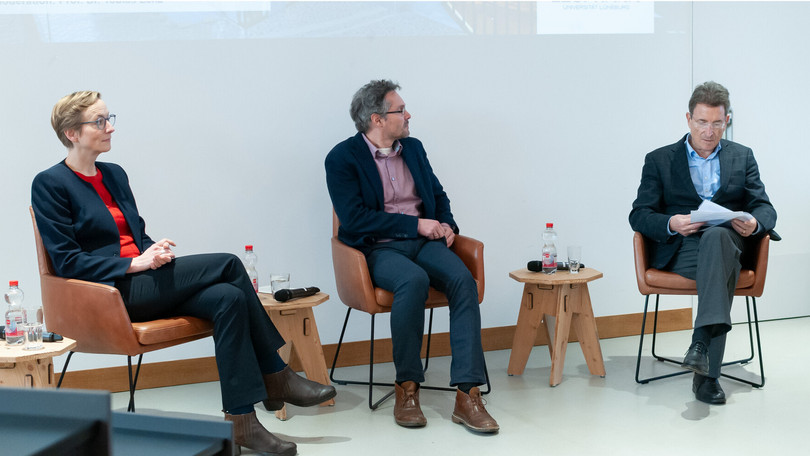"How can a just peace be established?"
Panel discussion
2022-11-30 "How can a just peace be established?" This question was discussed by ethicist Prof. Dr Wolfgang Huber from Berlin and peace researcher Prof. Dr Ursula Schröder from the Institute for Peace Research in Hamburg. The event was part of the series "Ethics in Conversation", which is organised by the Leuphana Presidential Board together with PD Dr. Thomas Kück from the Institute for Ethics and Theology. The President of Leuphana, Prof. Dr. Sascha Spoun, opened the panel discussion, which was moderated by the Lüneburg political scientist Prof. Dr. Tobias Lenz. In the well-attended lecture hall 4, interested parties from university life and the city public had come together for an hour of topical and in-depth discussion.
As former Chairman of the Council of the Evangelical Church in Germany, Wolfgang Huber was asked about its peace memorandum from 2007. Huber emphasised the concept of a "just peace" in the document: In addition to protection against violence and the promotion of freedom, it is also about overcoming hardship and the recognition of cultural diversity. Unfortunately, the situation in Ukraine is still far from such a perspective of peace at the moment.
Ursula Schröder also doubted that peace could be concluded in the near future. As long as one side still has the prospect of military gains, the violence will not rest permanently. Moreover, a ceasefire that is agreed too quickly - as desirable as it is for the population - carries the risk of an unstable peace in terms of time and content. A renewed outbreak of violence would then be very likely, as conflict research has shown globally.
"Shouldn't Russia's justified interests also be taken more into account internationally?" So asked a participant from the audience. On the one hand, Huber and Schröder responded to this with understanding, but on the other hand they also clearly showed that Ukraine was the country under attack, which had a right to self-defence. And nobody could watch from the outside, but had to help and support, said Huber. He clearly declared his support for Ukraine through the delivery of weapons.
And how does this attitude relate to pacifism? The former Bishop of Berlin answered that pacifism is not only the renunciation of violence and weapons. For a long time, that had been thought of too narrowly. For him, building bridges for peace and working for peace in a variety of ways is also pacifism.



